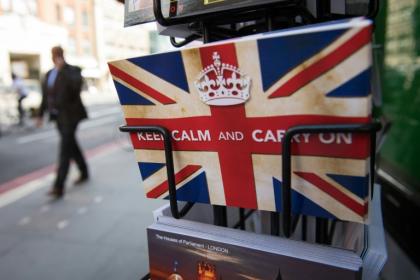What to expect from the markets Monday morning, and beyond
World markets plunged on Friday after the Brexit vote. Now what?
Even if markets don’t tank Monday morning — the second trading day after Britain’s historic Brexit vote — it will likely be a very bumpy ride. That’s because most analysts expect the best-case scenario on Monday — and in fact over the near and medium term — to be instability.
Worst case is a downright bloodbath, not so much in the US market and economy, but especially of course in Britain, and in Europe and emerging markets. Yes, fortress America will most likely be less affected, but ironically, globalism, the very mega-trend that was at the root of the Brits voting to decamp from the European Union, means that those of us in the US are more tied than ever to destabilization in Europe.
Developments over the weekend in the UK did nothing to allay traders’ fears. “What has been most shocking to me over the past 48 hours is that no one here knows what to do,” says Michael Elliot, former editor of Time International who was until recently CEO of ONE, the nonprofit founded by Bono. “There was no Plan B and both political parties are in complete collapse.”
International markets fell hard on Friday, with the Dow dropping 610 points or 3.39%. Most European markets fared even worse with the German Dax off 6.8%, France’s CAC off 8.0% and the Italian FTSE off 12%. The British FTSE was off a less bone-jarring 3.1%, but that was after it plunged 7% initially and recovered only after the Bank of England pledged an infusion of 250 billion pounds to stabilize the economy. Many European big name stocks — particularly financials — were pounded on Friday. Names like Lloyds, Barclays and Spanish giant Banco Santander were all of more than 20%. But the carnage extended to bellwether Telco stocks like Britain’s BT, Telecom Italia and Spain’s Telefonica all of which dropped more than 15%. These of course are huge, negative moves. Again, this speaks to the fragility and instability that will likely be the hallmark of financial markets over the coming days and weeks.
For ordinary investors all of this is tough to stomach, but the old rules really still apply. Stand pat, unless you need cash over the short term. If you have your eye on a stock and have been wanting to buy, this could well be an opportunity, but it probably makes sense to dollar average your purchase, in other words do your buying over a number of days, rather in one shot.
It is likely that stocks will be wobbly at best for the foreseeable future and could decline more. The dollar, Swiss franc and Yen could well continue to rally. Ditto for gold and US Treasuries, i.e. all the safer stuff. Which means the riskier stuff, i.e. emerging markets and European stocks and bonds, will get cheaper. When they become a buy is a tough call. Over time, the world will heal and redirect, but any sort of timeline is for now indeterminate.

The real problem with Brexit from the standpoint of the markets and investors is that it is not a one-off event. Rather, it opens up a can of worms. No matter what you think of the vote, it calls into question the whole notion of globalization and internationalism that has been an underlying trend of the global economy since World War Two. That’s a big deal. Calling into question a 70-year trend is hardly stabilizing. The problem now is that the markets’ focus will be overrepresented on heretofore rather low-impact events like Scottish Independence movements and Spanish Elections. And will likely twitch with every move and miscalculation, the latter of which certainly pertains to Brexit!
As the Brits are so famous for saying: “Keep calm and carry on.” No doubt that will be put to the test.
Read more:
How Trump benefits from Brexit
These 4 charts show what the US's exposure to the UK really looks like
4 last-ditch efforts that could stop the Brexit
Why the timing of this Brexit mess couldn't be worse for the world economy

